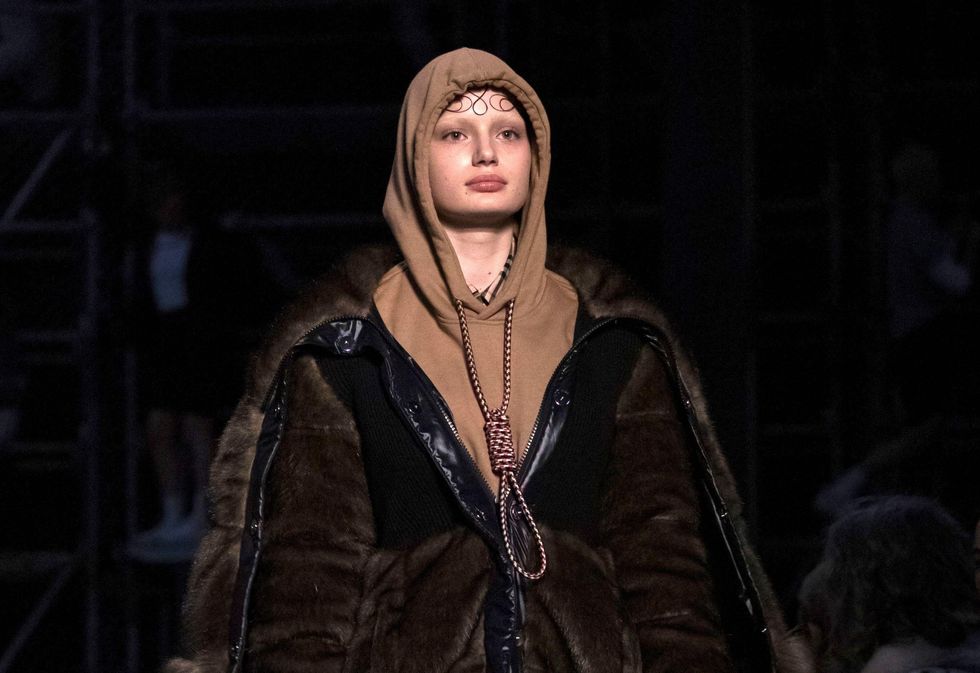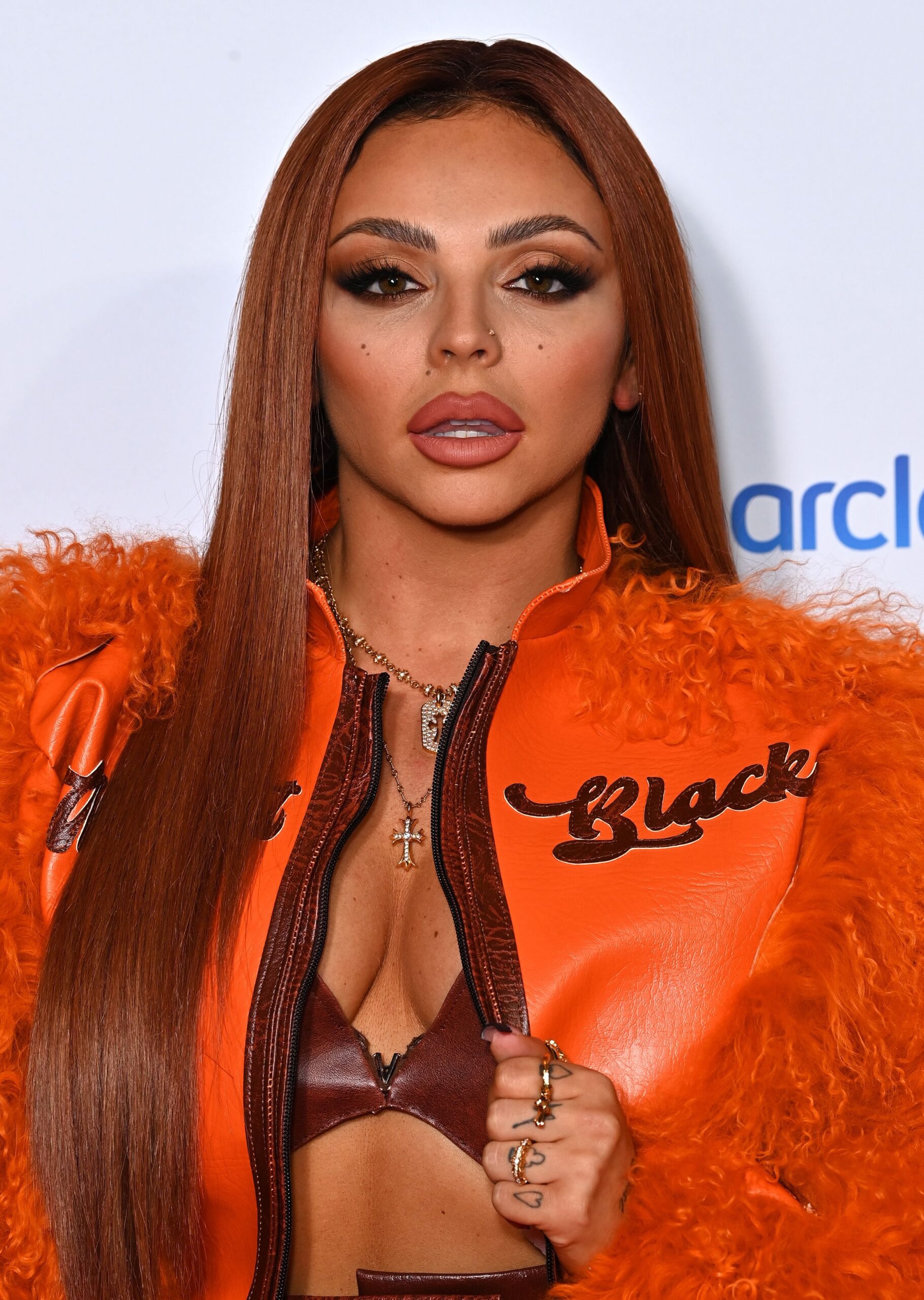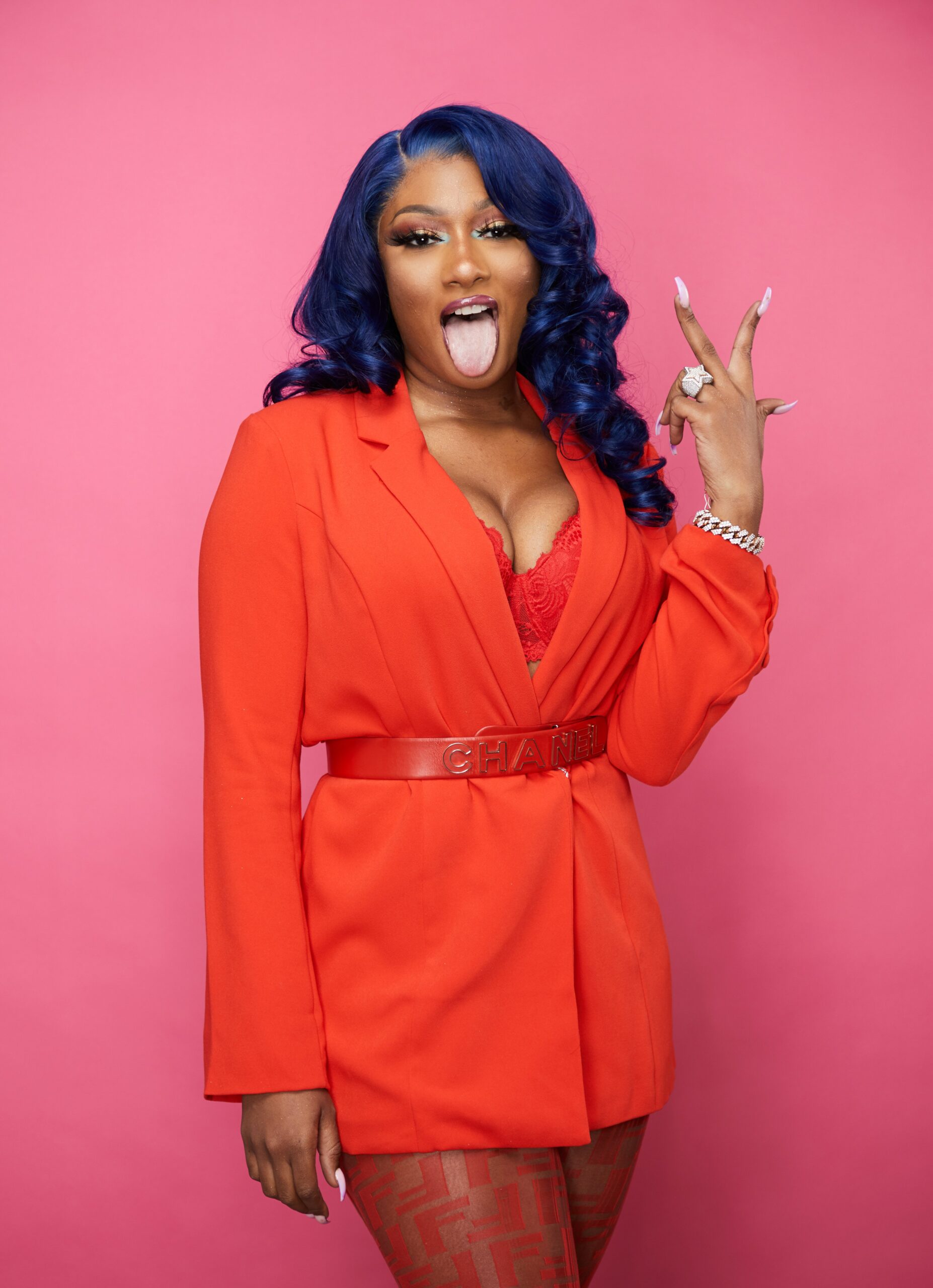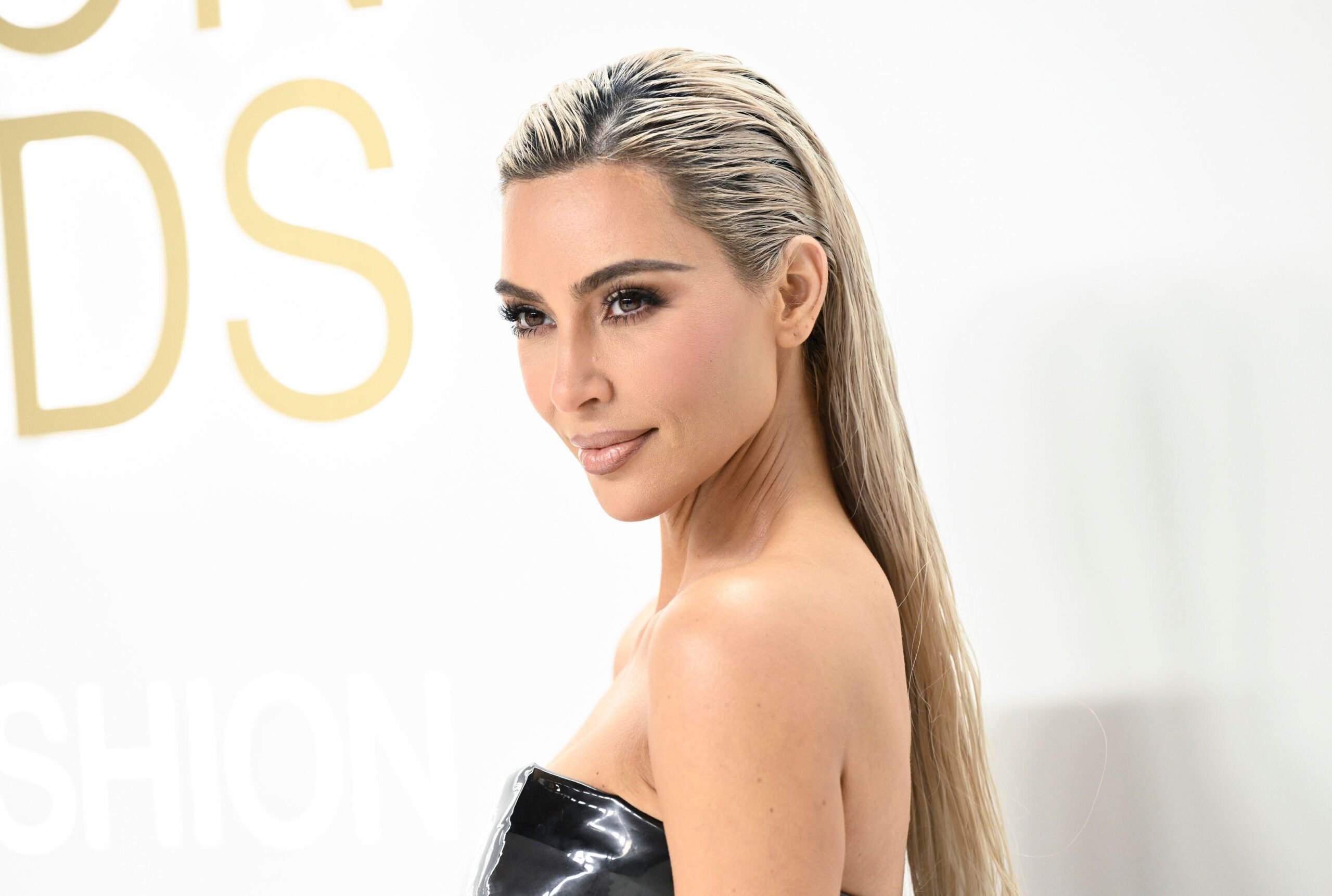
This photo shows a model wearing a creation by Burberry at the Autumn/Winter 2019 fashion week runway show in London. The chief executive and chief creative officer of luxury powerhouse Burberry have apologized for putting a hoodie with strings tied in the shape of a noose on their London Fashion Week runway.
Vianney Le Caer/Invision/AP/Shutterstock
Let’s travel back to 2019, when London Fashion Week attracted the standard cornucopia of high end brands showcasing their weird-as-hell designs, from Victoria Beckham disregarding the impracticality of peep toe boots in the winter to Burberry debuting a hoodie with a noose as the drawstring.
Yes, they did that. And yes, everyone was uncomfortable. But for all the outrage the offensive fashion incurred, image this happening in 2021. After the resurgence of Black Lives Matter, a Capitol insurrection, and a hotly divisive presidential election, these kind of mistakes by any brand would be inconceivable in 2021.
Hop into our time machine to ask the unthinkable: Have we as a society made…progress?

Model Liz Kennedy took to Instagram to voice not only her opposition to the clothing item, but how flippantly her concerns were disregarded at the fashion show. “Suicide is not fashion,” she posted. “It is not glamorous nor edgy and since this show is dedicated to the youth expressing their voice, here I go.
“Riccardo Tisci and everyone at Burberry it is beyond me how you could let a look resembling a noose hanging from a neck out on the runway. How could anyone overlook this and think it would be okay to do this especially in a line dedicated to young girls and youth. The impressionable youth. Not to mention the rising suicide rates world wide. Let’s not forget about the horrifying history of lynching either.”
After her post gained media attention, Burberry was quick to respond with a rote apology. Marco Gobbetti, the brand’s chief executive officer, issued a statement to CNN, “We are deeply sorry for the distress caused by one of the products that featured in our A/W 2019 runway collection. Though the design was inspired by the marine theme that ran throughout the collection, it was insensitive and we made a mistake.”
But the line’s nautical theme was inconsequential, as Kennedy noted, “There are hundreds of ways to tie a rope and they chose to tie it like a noose completely ignoring the fact that it was hanging around a neck. A massive brand like Burberry who is typically considered commercial and classy should not have overlooked such an obvious resemblance.”
She went on to describe feeling “extremely triggered” by the drawstrings’ resemblance to a noose, alluding to a history of suicide within her family. She added, “The issue is not about me being upset, there is a bigger picture here of what fashion turns a blind eye to or does to gain publicity.”
Burberry is only one fashion brand to release a wildly problematic clothing item, as now and then there are odd upticks in the bizarre trend of companies trading outrage for publicity.
Just weeks before the fashion show, Gucci pulled a black “wool balaclava sweater” from its stores after public backlash highlighted its resemblance to blackface. Gucci stated on Twitter that the brand “deeply apologizes for the offense caused” and gave a bland, generic claim to “consider diversity to be a fundamental value to be fully upheld.”
But when Piers Morgan is the voice of reason, something is sorely wrong. In response to the blackface sweater, Morgan posted, “I refuse to believe NOBODY at @gucci realised this would create a ‘black face’ racial firestorm…unless every member of their staff is a complete halfwit…which leads me to suspect they did it deliberately…which, if true, makes Gucci despicably cynical.”
In fact, it is unlikely that no one objected to Gucci or Burberry’s inflammatory designs. It wouldn’t even be out of the ordinary if they pursued outrage as a form of marketing. In 2018, Forbes published “Let’s Get Emotional: The Future of Online Marketing,” detailing how “emotions can boost an ad’s virality online.” While this scans true insofar as consumers’ feelings toward a company inform their brand loyalty, strong negative reactions toward a brand or a product are just as powerful.
The day Gucci recalled its blackface sweater, the brand became a trending Twitter topic. After Burberry apologized for its noose hoodie, the hashtags #Burberry and #BurberryNoose accrued hundreds of Tweets per hour. As Alex Nichols wrote in The Outline‘s article, Please Buy Our Product That Makes You So Mad, “This proposition is undoubtedly highly attractive to advertisers, who normally have to fork over $200,000 to get something trending on Twitter. Here’s my theory: corporate marketing departments are setting out to hijack this process, thus accomplishing the same thing—but for free.”
The key is to incur outrage. With the global advertising industry worth over a trillion dollars in 2017 (over $190 billion in online marketing alone), of course brands are aware of the public’s most temperamental topics. In the U.S., the largest advertising market in the world, any imagery stirring racial tensions or bipartisan conflict is a shortcut to free publicity, because the Internet exists as a vent for outrage.
Nichols notes, “When it comes to viral marketing, listicles and promoted tweets are far less cost-effective than press releases that prod our sore spots. If any mildly politically provocative corporate announcement can dominate that day’s news cycle through takes, counter-takes, meta-takes and aggregated clapbacks for a total cost of $0, what use is advertising? The onus is on us to stop falling for it.”
But with social media bringing sociopolitical issues to the fore of our daily lives, aren’t we a part of the problem if we don’t speak out? Doesn’t silence make us complicit? It seems half of America’s social media users believe so.
According to Pew Research Center’s survey in 2018, about half of all Americans had been “civically active on social media.” Specifically, 34% of respondents said they had “taken part in a group that shares an interest in an issue/cause, while 32% “encouraged others to take action on issues important to them.”
Of course, long-term damage to a brand’s reputation is a high risk to take for shocked Twitter mentions. So it’s possible these companies are as genuinely tone deaf as they are blinded by greed for publicity. Liz Kennedy made it clear that she wasn’t attacking Burberry as a brand, but its disregard for the gravity of the social issues it was so willing to tap into, posting, “I am ashamed to have been apart[sic] of the show. I did not post this to disrespect the designer or the brand but to simply express an issue I feel very passionate about.”
Meanwhile, Harlem designer Daniel R. Ray took it upon himself to follow up with Gucci this week. He posted to his Instagram that he’d met with Gucci’s CEO, as well as “some of the best minds from the corporate world,” including “90% people of color.”
He wrote, “They made great demands. It’s time for Gucci to answer. That is supposed to happen today…Once we have received an answer, I will be announcing a townhall meeting in Harlem for us to talk about how we feel about what they have proposed.” While it’s unclear if the Italy-based fashion brand will conduct an apology tour to make up for its blackface sweater, Ray maintains, “There is no excuse nor apology that can erase this kind of insult. There cannot be inclusivity without accountability.”
From other fashion brands like Prada and Dolce and Gabbana to common retailers like H&M, we can’t confirm what brands are thinking when they approve blatantly offensive products. One marketing expert at Metaforce, Allen Adamson, merely offers, “There is such pressure on speed that there is no time for consideration. When you are moving this fast, there is no time for perspective.”
So in regards to consumers, your outrage could be exactly what these brands want. In a time when we’re prioritizing antiracism, accountability, and course correction, the next step is to sharpen our cultural perspective to transform outrage into progressive action.











